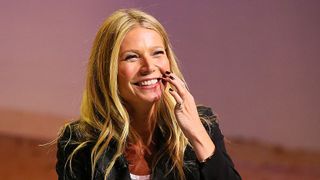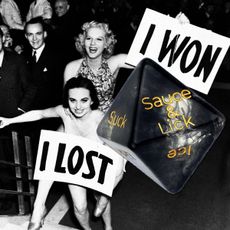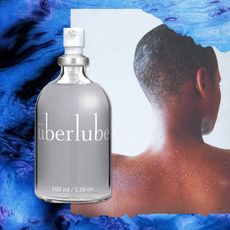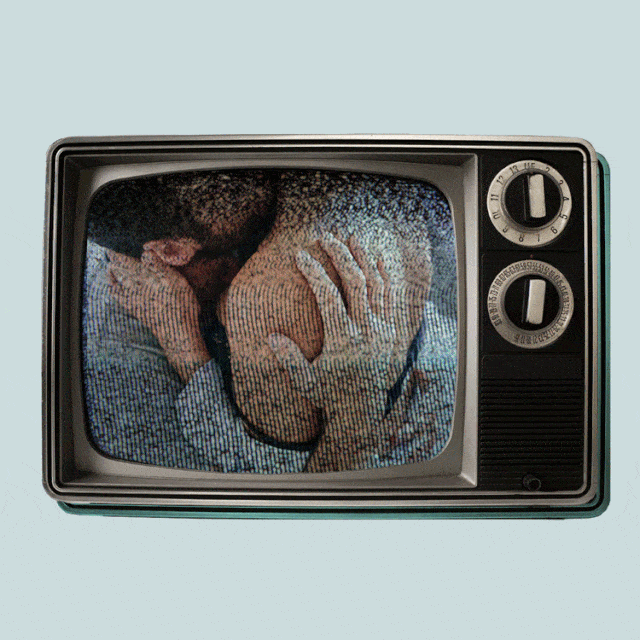

What a journey our attitudes towards anal sex have taken over the last few years. From Drake and the butt-eating conundrum, to scientific celebrations of big booties, to pegging on Broad City, to twerking, to Kim Kardashian's epic shiny rump on the cover of Paper Magazine, it's no question that all things ass-related have taken on a mainstream edge. Pop-culture acolytes proclaimed 2014 the "Year of the Booty," which heralded a deluge of think pieces about the portrayal of butt sex on mainstream television shows like The Mindy Project and articles assessing the erotic potential of the anus. It's now ascended to a cushy place in pop culture where it's become much less shocking to talk about and engage in the act of anal sex.
RELATED STORIES



Data from PornHub reveals that from 2009 to 2015, search volume for anal sex videos skyrocketed by 120 percent. But it's not just virtual fantasies that are increasing. People are also having anal sex more regularly. A 2017 survey of over 3,000 sexually active millennials shows that 35 percent of women and 15 percent of men are engaging in anal sex "at least some of the time."
Don't get me wrong—anal is still a major taboo in America. Witness: the enormous backlash of the educational Teen Vogue "Anal Sex 101" article—written by yours truly. Even if anal is less shrouded in shame than it once was, it's still not something young people are learning about or talking about openly.
But there are pressing questions to be discussed: If anal sex is normalized and becomes a part of our everyday sexual understanding, does that mean anal sex is on the table for every sexual encounter? How has the normalization of anal sex shifted our attitudes and discussions around consent? How must the conversations evolve as a result of anal's newfound popularity?
It shouldn't be assumed that everyone is open to having anal sex just because our culture is less uptight about butt stuff. Despite the supposedly clear cut knowledge that "no means no," I've heard many horror stories of women being pressured into anal under the guise of sex positivity or a "willingness to be sexually adventurous."
Vivienne*, 23, tells MarieClaire.com that she has felt pressure to have anal sex, even when she clearly stated it wasn't an option: "I was drunk and said I didn't want that. He kept doing it anyway even when I said stop."
I once had a guy try to push me into anal sex on the third date. He wondered why I wasn't into anal if I claim to be sex positive.
Stay In The Know
Marie Claire email subscribers get intel on fashion and beauty trends, hot-off-the-press celebrity news, and more. Sign up here.
Dr. Nikki Goldstein, sexologist and author of Single But Dating, tells MarieClaire.com that sexual empowerment is not about doing everything sexually. "Rather it's about having the freedom to explore your own sexuality however you choose. It's about having a choice to live your life sexually the way that you want to."
A 2014 study published in BMJ Open examined young people's attitudes about anal sex and found that the majority of young women who had engaged in anal sex said the encounters were riddled with pressure and were often painful. Among 130 teens surveyed between the ages of 16 and 18, consent was a hairy issue, with young men often thinking they didn't need to ask for informed consent in order to have anal sex.
Mal Harrison, director for the Center for Erotic Intelligence, blames this lack of communication around consent on what she calls low social intelligence. In this case, "the desperation to have any sex regardless of the consequences, pain, or disrespect it causes another." She describes high social intelligence as knowing the greatest sex happens between people who are genuinely into it with great enthusiasm. "This is more of a power play for guys than it is about sex. To them, it's about convincing you, coaxing you into doing something you're not cool with."
Sarah Tomchesson, a sex educator and head of business relations at Pleasure Chest says that even though there is a high concentration of nerve endings around and just inside the anus—so in theory the ass has the potential to be a stimulating erogenous zone—there's also plenty of room for error with anal play. She notes that many people have had bad first experiences because they either didn't use lubricant, moved too fast, thought that anal play had to involve deep penetration (when, in fact, external stimulation and light, shallow penetration is ideal for accessing the nerve endings in the anus) or felt pressured to try it.
We have to talk about this. We can't just brush this issue under the rug for fear of a right-winged, "We told ya anal was bad and a sin!" backlash.
In order for people to avoid anal when they don't want to have it, and to have good anal when they do, we have to provide clear-cut, pleasure-based sex education and consent in schools and at home. Just because the liberal media is all about anal now shouldn't suggest that anal is an automatic given when you hook up or that young people have learned how to engage in butt stuff safely.
"Anal sex is an area of sexual exploration where consent is even more essential for a number of reasons," says Tomchesson.
No" does not mean "try harder." "No" does not mean "no to vaginal sex, but maybe anal is fine." "No" means no.
A big factor is that the butt does not self lubricate and the tissue around the anus is very sensitive, so anal sex requires more prep, planning, and communication. "We have all been socialized that the ass is a 'dirty' place, meaning that many of us have some conditioned baggage to work through before exploring anal. No matter how excited someone is to explore anal or how sexually adventurous someone is, anal play requires sensitivity, open communication, and understanding that not everyone is going to be interested in it."
We want all safe, ethical forms of sexuality to be out in the open, but that doesn't mean consent is any less important. In fact, discussions of consent are far more important the closer we move towards a sex positive worldview.
Being "sexually adventurous" does not equal "always down for anything." "No" does not mean "try harder." Saying "no" does not mean you are or aren't a prude. "No" does not mean "no to vaginal sex, but maybe anal is fine." "No" means "no." No explanation needed.
As long as we're glamorizing anal sex without proper education, there will be plenty of confusion. It all starts with the basics so that we can help foster a generation of sexually mature and self-aware adults.
Follow Marie Claire on Facebook for the latest celeb news, beauty tips, fascinating reads, livestream video, and more.
Gigi Engle is a writer, certified sexologist, sex coach, and sex educator. Her work regularly appears in many publications including Brides, Marie Claire, Elle Magazine, Teen Vogue, Glamour and Women's Health.
-
 While In Character Filming ‘Never Been Kissed,’ Drew Barrymore Was Told to Tone It Down Because “You’re Just Looking Too Unattractive”
While In Character Filming ‘Never Been Kissed,’ Drew Barrymore Was Told to Tone It Down Because “You’re Just Looking Too Unattractive”The studio told Barrymore she’d gone too far with the “Grossie” when it came to Josie Geller.
By Rachel Burchfield Published
-
 Does Katie Holmes Have a New Favorite Shoe Trend?
Does Katie Holmes Have a New Favorite Shoe Trend?She swapped her usual sneakers for $150 Mary Janes.
By Halie LeSavage Published
-
 Nicola Peltz Beckham Skipped Her Mother-in-Law Victoria Beckham’s 50th Birthday Party—But There’s a Reason
Nicola Peltz Beckham Skipped Her Mother-in-Law Victoria Beckham’s 50th Birthday Party—But There’s a ReasonThe nonexistent Nicola/Victoria feud continues to not exist.
By Rachel Burchfield Published
-
 The 22 Best Vibrators, According to Sex Toy Experts
The 22 Best Vibrators, According to Sex Toy ExpertsThe best options, for every preference and price range.
By Gabrielle Ulubay Last updated
-
 The Best Period Sex Tips, According to Sex Experts
The Best Period Sex Tips, According to Sex ExpertsWho says messy can't be sexy?
By Gabrielle Ulubay Last updated
-
 The 20 Best Sex Games for Couples in 2023
The 20 Best Sex Games for Couples in 2023Who said game nights need to be wholesome?
By Gabrielle Ulubay Last updated
-
 The 14 Best Lubes for Every Need
The 14 Best Lubes for Every NeedGood sex should always go smoothly.
By Gabrielle Ulubay Last updated
-
 COVID Forced My Polyamorous Marriage to Become Monogamous
COVID Forced My Polyamorous Marriage to Become MonogamousFor Melanie LaForce, pandemic-induced social distancing guidelines meant she could no longer see men outside of her marriage. But monogamy didn't just change her relationship with her husband—it changed her relationship with herself.
By Melanie LaForce Published
-
 100 Sex Songs That Won't Make You Cringe
100 Sex Songs That Won't Make You CringeDim the lights and hit play on this sex songs — the perfect playlist of songs to have sex to.
By The Editors Published
-
 75 Real Sex Scenes in Movies
75 Real Sex Scenes in MoviesThese actors aren't faking anything.
By Mehera Bonner Last updated
-
 33 Unexpected Valentine's Day 2023 Date Ideas
33 Unexpected Valentine's Day 2023 Date IdeasA.k.a. not dinner and roses.
By The Editors Published